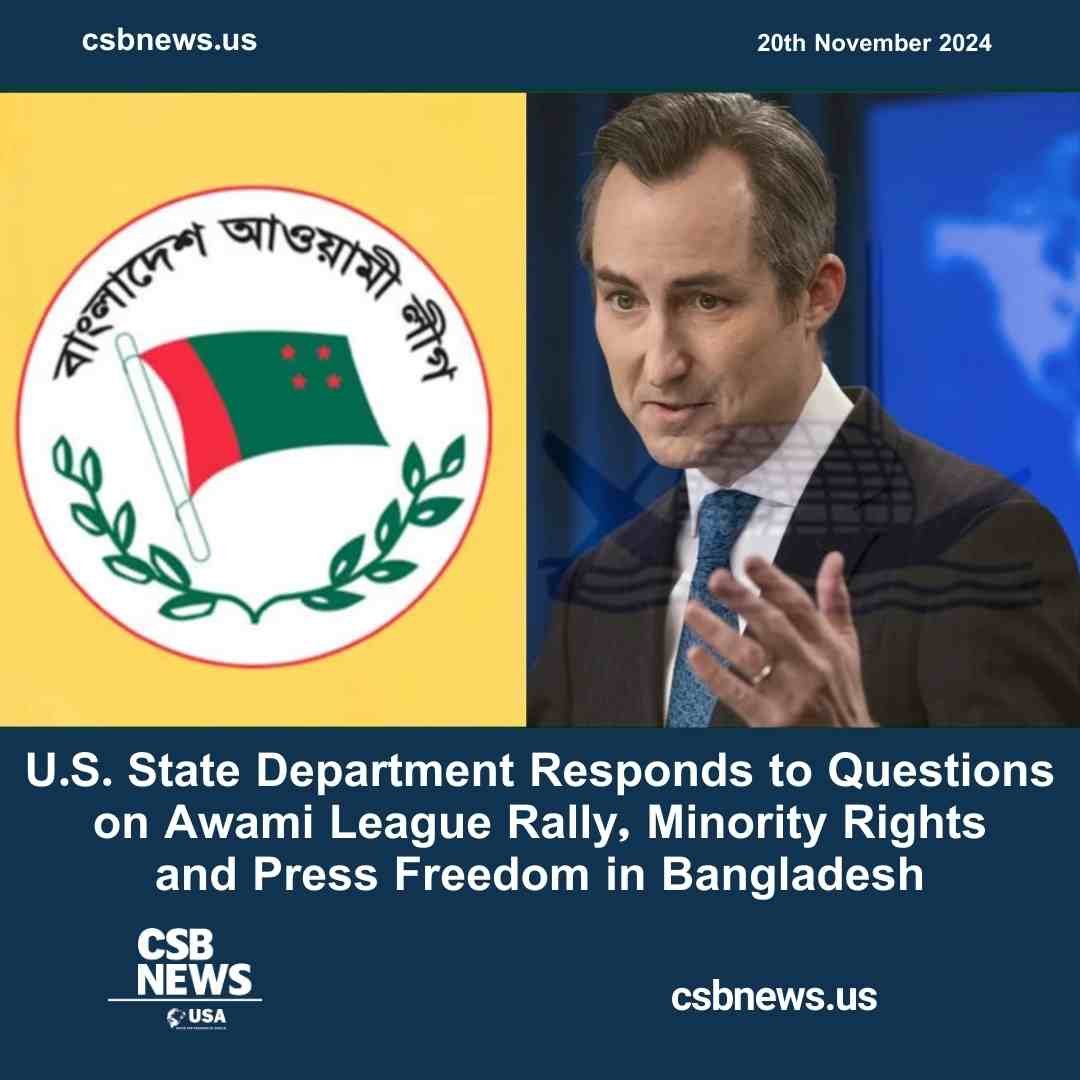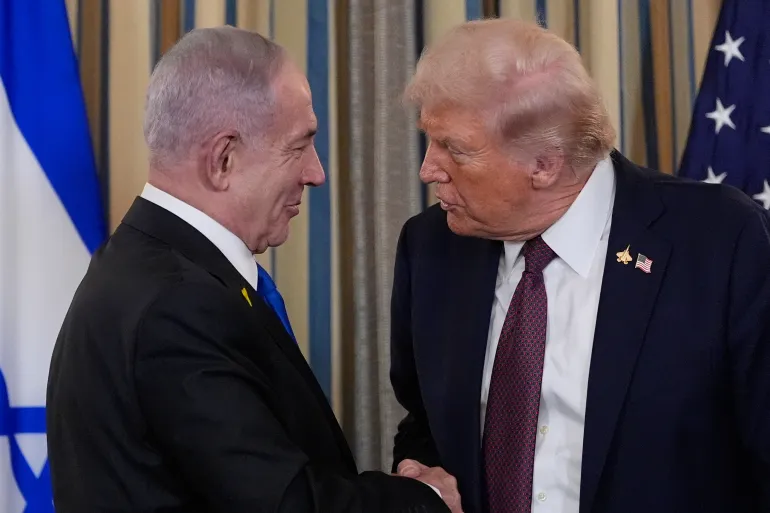U.S. State Department Responds to Questions on Awami League Rally, Minority Rights, and Press Freedom in Bangladesh
The U.S. State Department addressed recent concerns about political suppression and human rights in Bangladesh, particularly regarding the Awami League’s planned rally on Nur Hossain Day and reports of violence against peaceful demonstrations. The questions were raised during a press briefing by an Indian journalist on Monday.
U.S. State Department Responds to Questions on Awami League Rally, Minority Rights, and Press Freedom in Bangladesh
Matthew Miller, spokesperson for the U.S. State Department, responded to inquiries about allegations of coordinated attacks on the Awami League’s peaceful rally, which included assaults on women and minorities, as well as the detention of journalists and the revocation of press accreditation cards.
U.S. Calls for Non-Violent Political Discourse
The journalist referred to opposition claims that the August 5 student protests could lead Bangladesh back to political unrest, and asked if the U.S. had communicated any concerns with Bangladesh’s interim government. In response, Miller reaffirmed that while specific discussions with the Bangladeshi government would not be disclosed, the U.S. has consistently communicated its stance that peaceful political movements should be supported.
"We support peaceful movements and oppose any violent suppression of peaceful protests," Miller stated, emphasizing the U.S. position on the importance of political freedom and non-violent civic engagement.
U.S. Concerned Over Secularism Debate in Bangladesh’s Constitution
The journalist also inquired about the potential removal of "secularism" from Bangladesh’s constitution, an ongoing topic of debate within the country. Miller stated that he would take note of the issue and review whether the U.S. had any formal stance on the matter.
The U.S. has continued to monitor developments in Bangladesh, especially concerning minority rights, media freedoms, and the treatment of opposition groups. The State Department's comments reflect ongoing concerns regarding political freedoms and human rights in Bangladesh.










